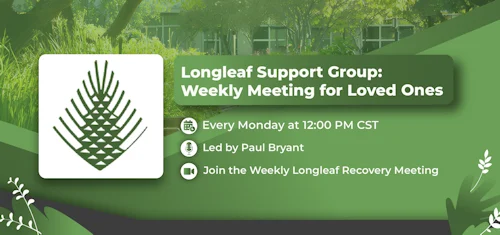Addiction is a complex condition that affects both the body and the mind, often driven by negative thought patterns and self-defeating behaviors. Cognitive behavioral therapy (CBT) is one of the most effective, evidence-based treatments for addressing these underlying mental health issues. By helping individuals recognize and change distorted thinking, CBT empowers people to build healthier coping mechanisms, reduce cravings, and prevent relapse—making it a cornerstone of modern addiction recovery programs.
At Longleaf Recovery & Wellness Centre, we provide personalised and comprehensive CBT in Birmingham as part of our integrated approach to addiction and mental health care. Our skilled therapists tailor CBT techniques to each client’s unique needs, helping them identify triggers, manage emotions, and develop practical strategies for lasting recovery. By combining clinical expertise with compassionate support, we create a healing environment that enables individuals to achieve real, lasting change.
CBT emerged in the 1960s, building on the earlier work of behavioral therapy pioneers, such as B.F. Skinner and cognitive psychology research on how thinking patterns influence emotions. Psychologist Aaron T. Beck is often credited with formalizing CBT after observing that many of his patients experienced persistent negative thoughts that shaped their feelings and actions. Over time, CBT evolved into a widely studied, adaptable approach, now applied to a range of mental health conditions and everyday stressors.
How CBT Works: Thoughts, Feelings, and Behaviors
At the heart of CBT lies the understanding that our thoughts, feelings, and behaviors are interconnected. A negative thought can lead to distressing emotions, which may trigger harmful behaviors—and the cycle can repeat itself. For example, thinking “I’m not good enough” might cause feelings of hopelessness, leading to social withdrawal. CBT helps break these cycles by challenging distorted thinking and replacing it with balanced, realistic perspectives, which in turn foster healthier emotional responses and behaviors.
Conditions Commonly Treated with CBT
CBT is effective for a broad range of mental health conditions, including:
- Anxiety disorders (generalized anxiety, panic disorder, social anxiety, phobias)
- Depression and mood disorders
- Post-traumatic stress disorder (PTSD)
- Obsessive-compulsive disorder (OCD)
- Bipolar disorder (as part of a broader treatment plan)
- Eating disorders
- Addiction and substance use disorders
- Sleep disturbances
- Chronic pain management
Because CBT is highly adaptable, therapists can tailor it to address your unique concerns and goals.
Benefits of Cognitive Behavioral Therapy for Mental Health
The benefits of CBT extend far beyond simply easing immediate symptoms—it’s about creating lasting, positive change in how you think, feel, and respond to life’s challenges. Clients often discover that the tools they learn in therapy have a ripple effect, improving multiple areas of their lives.
CBT helps you see the connections between your thoughts, feelings, and behaviors. By recognizing unhelpful thinking patterns, you can challenge them before they lead to negative emotions or actions. Over time, this awareness becomes second nature, allowing you to make more intentional choices.
Life inevitably brings challenges, but CBT equips you with practical strategies to face them head-on. Instead of reacting impulsively or feeling stuck, you learn to break problems into manageable parts and create effective solutions.
Many people come to CBT because their emotions feel overwhelming or uncontrollable. Through specific exercises, you learn to recognize emotional triggers early and apply calming techniques, reducing the intensity and duration of distress.
CBT shifts your approach to adversity. Rather than avoiding problems, you develop healthier responses—whether that’s practicing mindfulness, using relaxation methods, or reframing your perspective to reduce stress.
As you apply CBT strategies successfully, your self-confidence naturally grows. You begin to trust your ability to manage difficult situations without reverting to old habits.
CBT helps replace destructive patterns—like substance use, avoidance, or excessive worry—with constructive behaviors that support your well-being and long-term goals.
CBT for Addiction Recovery and Relapse Prevention
Cognitive Behavioral Therapy in Birmingham is often a core component of both inpatient and outpatient addiction programs. Treatment providers use it to teach practical relapse-prevention techniques, such as coping with stress without substances, building a supportive network, and creating structured daily routines. By focusing on both immediate recovery goals and long-term mental resilience, CBT helps individuals develop the skills and confidence to sustain sobriety well beyond the treatment setting.
What to Expect in a CBT Session
CBT sessions follow a structured yet flexible format, designed to help you make consistent progress toward your goals. From the very first meeting, your therapist will create a safe, non-judgmental space where you can openly discuss your challenges.
- Assessment: Your therapist begins by exploring your concerns, personal history, and the ways your thoughts, feelings, and behaviors interact with one other. This helps identify the patterns that need attention.
- Goal setting: Together, you’ll set clear, measurable objectives—such as reducing anxiety episodes, improving emotional regulation, or maintaining sobriety—so progress is easy to track.
- Skill building: You’ll learn practical tools like thought records, coping strategies, and behavioral experiments designed to shift unhelpful thinking and promote healthier actions.
- Homework: Between sessions, you’ll apply what you’ve learned through journaling, practicing coping methods, or testing new approaches in real-life situations. This practice is essential for lasting change.
- Review: Each session begins with a progress check to assess what worked, troubleshoot obstacles, and refine techniques.
How CBT Differs from Other Types of Therapy
CBT is also highly skills-based, teaching practical techniques that clients can use outside the therapy room. It is supported by extensive scientific research, making it one of the most evidence-driven forms of therapy available. Perhaps most importantly, it is collaborative—therapist and client work together as a team to identify challenges, create actionable strategies, and track progress toward lasting change.
Is CBT Right for You or Your Loved One?
CBT may be a good fit if you:
- Prefer a structured, goal-focused approach
- Are willing to practice skills between sessions
- Want to address specific problems rather than engage in open-ended exploration
- Value evidence-based methods backed by research
That said, CBT isn’t the only therapy option. Some people may benefit from combining CBT with other modalities, especially if they’re dealing with complex trauma or deep-rooted emotional issues.
Integrating CBT with Other Treatment Approaches
Many mental health professionals integrate CBT with other evidence-based therapies to create more comprehensive treatment plans. Combining methods can address multiple aspects of mental health and yield stronger, more lasting results.
DBT focuses on building emotional regulation, distress tolerance, mindfulness, and interpersonal effectiveness. When used in conjunction with CBT, it helps individuals manage intense emotions while also addressing unhelpful thought patterns. This combination is especially effective for conditions like borderline personality disorder, mood disorders, and self-destructive behaviors.
Mindfulness-based therapies encourage present-moment awareness and acceptance, which complement CBT’s focus on challenging distorted thinking. Together, they help reduce anxiety, improve concentration, and lower stress levels, making it easier to apply CBT skills in daily life.
In some cases, psychiatric medication is used alongside CBT to stabilize mood, ease symptoms of anxiety or depression, and improve focus. When symptoms are better controlled, clients are more able to participate in therapy and implement CBT strategies effectively.
Family therapy can help address relational patterns and improve communication within the household. By involving loved ones in the therapeutic process, clients benefit from a stronger support system, which reinforces the changes made during CBT sessions.
Group therapy offers a supportive environment where clients can share their experiences, learn from others, and practice CBT-based skills in real-time. Peer encouragement can boost motivation and help individuals feel less isolated in their recovery journey.
Insurances We Accept








Finding Qualified CBT Therapists in Birmingham, AL
Choosing the right CBT therapist is crucial for achieving the best results from treatment. A skilled provider can adapt techniques to your specific needs, whether you’re managing anxiety, depression, addiction, dual diagnosis, or another challenge.
Search the Psychology Today therapist directory and filter for “Cognitive Behavioral Therapy” and “Birmingham, AL” to see professionals specializing in CBT. Read their profiles to learn about their experience, specialties, and approach.
Reach out to organisations such as the University of Alabama at Birmingham (UAB) clinics or local community mental health agencies. Many offer affordable options, including sliding-scale fees based on income.
Doctors often have trusted mental health providers they work with and can recommend based on your needs.
Ensure the provider is licensed in Alabama and has completed specific CBT training. Common credentials include:
- LPC – Licensed Professional Counselor
- LCSW – Licensed Clinical Social Worker
- PsyD – Doctor of Psychology
- PhD – Doctor of Philosophy in Psychology
When interviewing potential therapists, consider asking:
- How many years have you practiced CBT?
- What is your approach to customizing treatment?
- Do you assign homework between sessions?
- Have you worked with clients with my specific concerns?
What outcomes have past clients experienced?
By following these steps, you can find a CBT professional in Birmingham who not only has the right qualifications but also fits your personality and therapeutic goals.
Online vs. In-Person CBT: Which Option Fits Your Needs?
Online CBT offers greater flexibility and accessibility, making it an excellent choice for individuals with mobility challenges, busy schedules, or limited transportation options. Sessions can be conducted from the comfort of your home, and research shows that telehealth CBT can be just as effective as in-person therapy for many mental health concerns. Choosing between the two formats often comes down to personal preference, lifestyle needs, and comfort level with technology.
Supporting Long-Term Recovery with Cognitive Behavioral Therapy
Recovery is not a single event—it’s a continuous process that benefits from strong, lasting strategies. Cognitive Behavioral Therapy in Birmingham plays a vital role in supporting individuals well beyond their initial treatment, helping them maintain progress and adapt to new challenges over time.
Building Skills for the Future
CBT goes beyond short-term symptom relief by giving clients practical tools they can use for a lifetime. Skills such as identifying and challenging unhelpful thoughts, managing emotional triggers, and developing healthier coping strategies form a strong foundation for long-term mental wellness. These techniques can be applied to everyday challenges—whether it’s managing work stress, improving communication, or maintaining healthy relationships.
Maintaining Progress Over Time
For individuals recovering from addiction or managing ongoing mental health conditions, CBT can be an anchor for continued stability. Many people schedule booster sessions after completing their main treatment program to refresh coping skills, troubleshoot emerging challenges, and prevent relapse. This ongoing connection to therapy reinforces positive habits, strengthens resilience, and helps ensure that the progress made becomes a permanent part of daily life.







